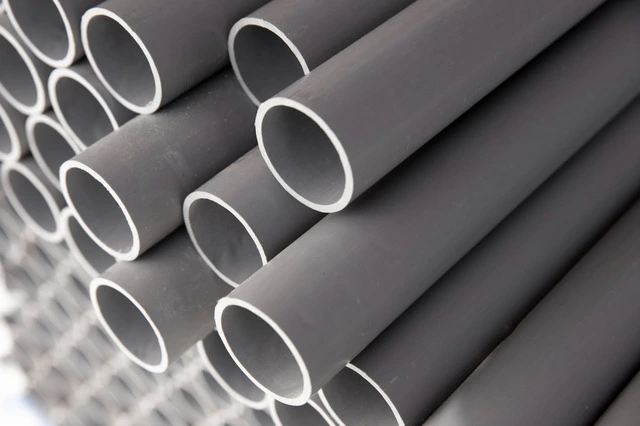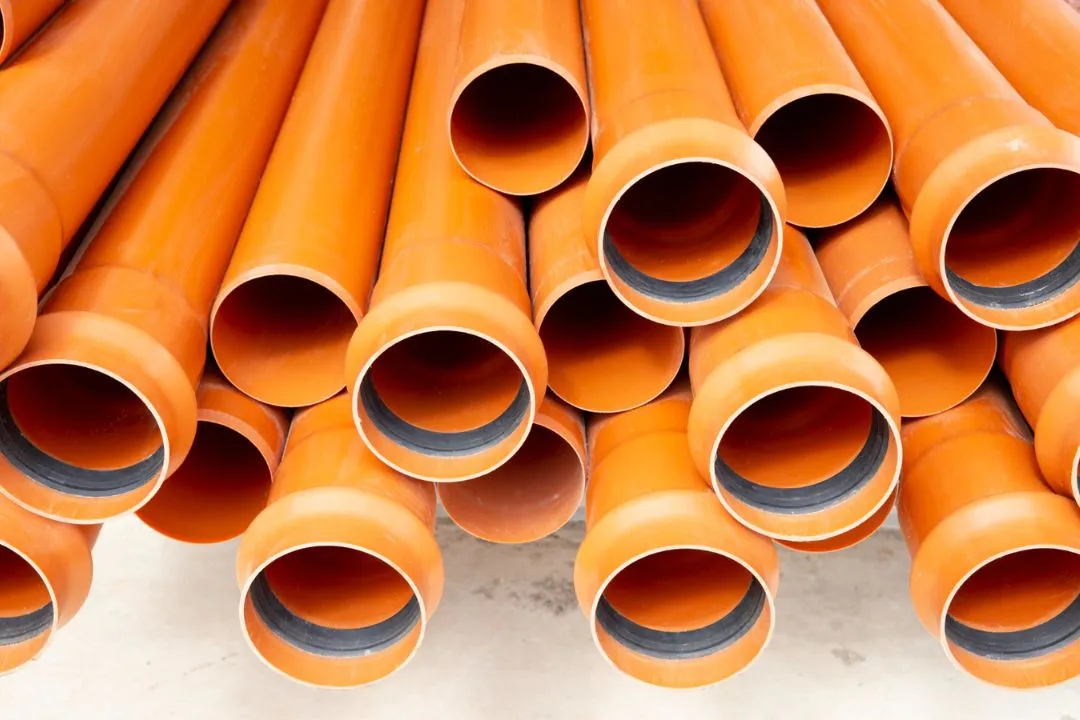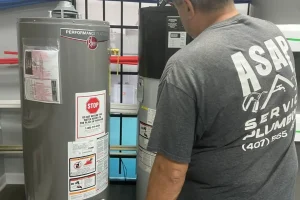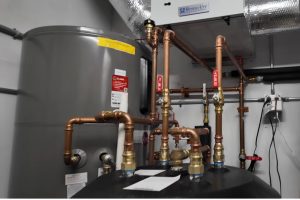Selecting the correct pipes for any plumbing job is crucial to ensure your home’s plumbing system works well and lasts long. With so many options available in the market, it is easy to feel overwhelmed. Which pipes are good for plumbing?
In this guide, we’ll explore the various types of pipes commonly used in plumbing, with their own strengths and weaknesses to help you get a better understanding of each.
Quick Glance To Most Common Plumbing Pipes Used In Orlando’s Homes
You might have heard of various types of pipes designed for plumbing a house. Knowing each of the pipes with their core functionalities is crucial to ensure the best performance of your home plumbing system.
Have a look at the 5 different kinds of piping you might run into for your Orlando and Kissimmee home.
| Types Of Plumbing Pipes | Best Used For |
| PVC Pipe | Cold supply lines (CPVC pipe only)Drain linesVent pipesIrrigation systems |
| Copper Pipes | Hot and cold water supply linesHeating systemsRefrigeration linesGas lines (Type K copper) |
| Galvanized Steel Pipes | Water supply linesGas supply linesFire sprinkler systemsOutdoor drainage systems |
| UPVC (Unplasticized Polyvinyl Chloride) Pipes | Drainage systemsSewage linesVentilation systemsRainwater harvesting systems |
| SWR (Soil, Waste, and Rainwater) Pipe | Soil and waste drainage systemsRainwater harvesting systemsSeptic tank connectionsExternal guttering and downpipes |
Best Pipes Used For Plumbing In Homes
When you desire to have a sturdy water supply system in your Orlando and Kissimmee homes, ensuring reliable plumbing is the first factor to consider. Explore our curated selection of the best pipes for plumbing designed for your needs.
1. PVC Pipe
PVC pipes are a great choice if you want the best plumbing pipes for your house repiping. They’re affordable, durable, and easy to work with. Their lightweight nature makes installation easy, and their resistance to corrosion and chemicals ensures they’ll last a long time.
You’ll appreciate their smooth interior, which helps prevent clogs. Just keep in mind that PVC pipes aren’t ideal for hot water since they can warp under high temperatures.
Also, if you’re using them outdoors, make sure they’re protected from sunlight to prevent fragility over time. Overall, PVC pipes offer a reliable solution for your residential plumbing requirements.
Strength:
- Durable
- Lightweight and easy to install
- Resistant to corrosion and chemicals
- Smooth interior reduces clogs
- Reduces the cost of repiping a house
Weakness:
- Not suitable for hot water applications
- Can warp under high temperatures
- May become brittle when exposed to sunlight
2. Copper Pipes
For a home’s plumbing, copper pipes stand out as a reliable choice. Their sturdy construction ensures they last for decades, providing peace of mind for your plumbing needs.
You’ll find them resistant to corrosion, making them perfect for delivering both hot and cold water throughout your home. Their flexibility and strength make installation straightforward, minimizing the risk of leaks over time.
However, it’s worth noting that copper pipe for plumbing may come with a higher initial cost compared to alternatives like PVC. Additionally, professional soldering during installation might be necessary, adding to the overall expense. Despite these considerations, the longevity and reliability of copper pipes make them a preferred option for residential plumbing projects.
Strength:
- Long-lasting durability
- Corrosion-resistant
- Easy installation
- Reliable performance
- Efficient heat conductivity
Weakness:
- Higher initial cost
- Professional installation required
- Vulnerable to freezing damage
- Potential for pinhole leaks
3. Galvanized Steel Pipes
If you’re looking for a sturdy option for repiping, galvanized steel pipes are worth considering. Coated with zinc, they offer exceptional corrosion resistance, promising durability and reliability for years to come.
For indoor or outdoor applications, galvanized pipe plumbing is versatile and fit for various plumbing needs. Their strength makes them ideal for transporting water and gas throughout your home, ensuring efficient distribution.
However, keep in mind that their weight and installation complexity may pose challenges compared to lighter alternatives like PVC. Over time, degradation of the zinc coating could lead to potential corrosion issues
Strength:
- Exceptional corrosion resistance for durability.
- Versatile for indoor and outdoor use.
- Sturdy construction for water and gas transport.
- Reliable performance over time.
- Handles high pressure and temperature changes well.
Weakness:
- Heavier and trickier to install.
- Professional help may be needed.
- Zinc coating degradation can lead to corrosion.
- Higher initial costs.
- Susceptible to rust.
4. UPVC (Unplasticized Polyvinyl Chloride) Pipes

When dealing with frequent water pressure fluctuations causing leaks in your plumbing system, UPVC offers a reliable solution. These specialized pipes for water lines, made from unplasticized polyvinyl chloride, are renowned for their ability to handle varying pressure conditions without compromising integrity.
You’ll find them ideal for addressing such issues, providing minimal maintenance hassles. Additionally, UPVC pipes offer excellent chemical resistance, making them suitable for transporting a wide range of liquids.
Their lightweight construction simplifies installation, while their smooth interior surface reduces friction, ensuring efficient water flow. With UPVC pipes, you can trust in a durable and hassle-free plumbing solution tailored to your needs.
Strength:
- Resists water pressure fluctuations, minimizing leaks.
- Chemically resistant for versatile use.
- Lightweight for easy installation.
- A smooth interior ensures efficient water flow.
- Low maintenance for long-term reliability.
Weakness:
- Limited temperature resistance.
- Susceptible to brittleness in extreme temperatures.
- Less durable in high-impact environments.
- Higher initial cost.
- Requires careful handling during installation.
5. SWR (Soil, Waste, and Rainwater) Pipe
If you’re tired of dealing with clogged drains and overflowing gutters during heavy rains, SWR (Soil, Waste, and Rainwater) pipes offer a comprehensive solution for repiping a house in Florida. These pipes ensure efficient drainage and prevent waterlogging around your property.
You’ll find them indispensable for maintaining clean and hygienic surroundings, particularly in areas prone to heavy rainfall. The sturdy construction of SWR pipes provides reliable performance that reduces the risk of water damage and maintenance costs.
Plus, their corrosion-resistant properties guarantee long-term durability, giving you peace of mind even during the harshest weather conditions.
Strength:
- Efficient drainage prevents waterlogging.
- Maintains cleanliness in heavy rainfall areas.
- Sturdy construction reduces water damage risk.
- Seamless connectivity minimizes leaks.
- Corrosion-resistant for long-term durability.
Weakness:
- May need professional installation.
- The initial cost could be higher.
- Limited size and fitting options.
- Requires periodic maintenance.
- Suitability depends on local regulations.
Things To Consider While Choosing The Best Pipe For Plumbing
When choosing the best pipe for plumbing a house or a commercial building, it’s essential to consider several factors to ensure optimal performance and longevity:
1. Material
Choose a pipe material based on factors like durability, corrosion resistance, and compatibility with your specific plumbing system. Common options include PVC, copper, galvanized steel, and PEX.
2. Application:
Consider the intended use of the pipe, whether it’s for water supply, drainage, or gas lines. Different applications may require different materials and specifications to ensure safety and efficiency.
3. Cost:
Evaluate both the initial cost and long-term maintenance expenses associated with the pipe. While some materials may have a higher upfront cost, they may offer greater durability and require less maintenance over time.
4. Size and Thickness:
Select the appropriate diameter and thickness of the pipe to accommodate the flow rate and pressure requirements of your plumbing system. Choosing the wrong size or thickness can result in inadequate water flow or potential leaks.
5. Environmental Impact:
Look for eco-friendly options and consider factors like recyclability and sustainability. Choosing pipes made from recycled materials or those with minimal environmental impact can help reduce your carbon footprint.
6. Warranty and Support:
Check for warranties and available customer support to address any issues that may arise with the pipe. A reliable warranty and responsive customer support can provide peace of mind and assistance in case of unexpected problems.
In Closing
When the question arises – what are the best pipes for plumbing in locations like Orlando and Kissimmee, these listed pipes stand out as a reliable choice.
Their affordability, durability, and versatility make them well-suited to withstand the unique challenges posed by Florida’s climate, including heavy rainfall and potential hurricane threats.
By choosing any pipes suggested in the list, homeowners can ensure a reliable and long-lasting plumbing system that meets their needs for years to come.
Frequently Asked Questions
What eco-friendly pipe options are available for plumbing?
If you’re environmentally conscious, consider pipes made from recycled materials like recycled PVC or HDPE (High-Density Polyethylene). These options reduce environmental impact by reusing materials and minimizing the need for new resources.
Do certain pipe materials require more maintenance than others?
Yes, some pipe materials like galvanized steel may require more maintenance due to susceptibility to corrosion. Regular inspections and upkeep are essential to ensure the longevity and performance of these pipes.
Should I consult a plumber before choosing pipes?
Yes, consulting a licensed plumber is highly recommended. They can assess your specific needs, recommend the best type of pipe for your situation, and ensure compliance with local building codes.




